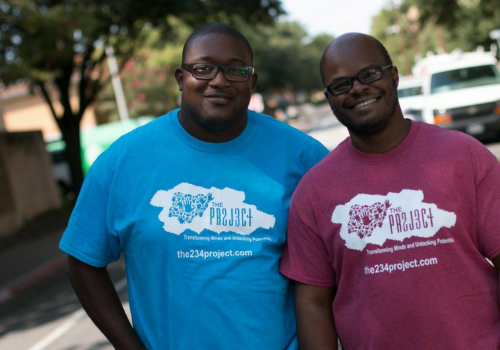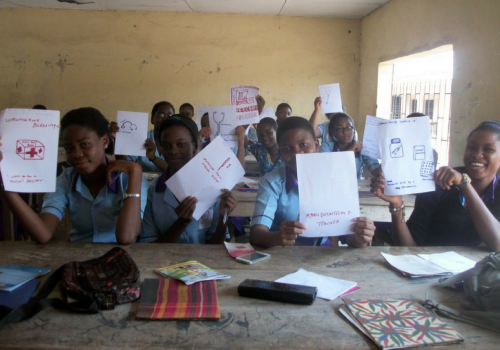[This draft is part of a bigger project… thanks for reading!]
“Water, e no get enemy…I dey talk of black man power…” When the late, great Fela Anikulapo Kuti uttered these words in the chorus to his song with the same title, the phrase resonated a feeling of empowerment for oppressed blacks all through the continent of Africa and beyond. However, few noticed that the inspiration for that phrase in Fela’s song was directly derived from elements of Yoruba religion: metaphysics-medicine and the belief in God. In this draft, I will discuss how the elements of Yoruba religion have impacted afro-beat music. To do this, I will first outline some of the key elements of Yoruba religion; and then, I will consider the history and content of afro-beat and opine on its interplay with the elements of Yoruba religion.
First, the elements of Yoruba religion can be defined as the belief in God (Olódùmaré), the belief in spirits, the reverence of ancestors, and the appreciation of metaphysics (idan)-medicine (oogun). The belief in God among the Yoruba is portrayed in oral traditions such as Yoruba myths, proverbs, adages, epigrams, riddles and recitals dating back centuries. These oral traditions remain the main sources of insight to the Yoruba view of the universe, human origin, and the afterlife. Some historians have processed these oral traditions as evidence of a Yoruba divinity – where the belief in one supreme being is compatible with the belief in a group of spirits different in kind from the supreme being.
In considering Yoruba oral traditions, you find that the Yoruba apply great importance to the names of things, places, and persons. A name to the Yoruba is rich with symbolism and significance. For example, one of the names assigned to the Yoruba God is Olódùmaré. This name when translated to English means something like “the king or chief who holds the scepter, wields authority, and has a quality which is superlative in worth, and is unchanging, permanent, and reliable”.
Another name for the Yoruba God is Olófin-orún which means “the king in heavens”. But the most common name the Yoruba use to address God is Olórún. This name when translated to English means something like “the owner of the heavens”. The Yoruba tend to use Olórún in everyday prayers and discussions. As a result, the use of Olórún features prominently in musical expressions like afro-beat. Having considered some of the ways the Yoruba address God, our next step is to consider the attributes the Yoruba give to God.
There are five ways the Yoruba describe the characteristics of God. The first one is Eledaa which means “the creator”. The Yoruba believe that God is the creator of the world and he delegates arch-divinities to carry out his tasks and errands. For example, it is believed that God assigned Òbàtálá to create the physical world as well as mold the physical bodies of men and women. Afterwards, God breathed life into the bodies.
The second attribute of God is Oga-Ogo which simply means “the unique one”. This attribute follows from a Yoruba myth that points to the fact that God is unique. It is believed that Olukun – “god of the sea” – challenged God to a display of splendor and power because of his success as a weaver. God was obliged to accept Olukun’s challenge so on the appointed day of the contest he sent his messenger, the chameleon, to see if Olukun was ready. As soon as God’s messenger the chameleon saw Olukun, his skin turned to the same exact color as Olukun’s outfit. Olukun felt insulted and changed his outfit, but the chameleon simply changed his skin again to match Olukun’s new outfit. This exchange happened seven times and on the last time, Olukun realized that if he could not outwit God’s messenger, how could he possibly outwit God in splendor? As a result, he acknowledged and exclaimed the uniqueness of God, Oga-Ogo.
The third attribute of God is Oba or Olofin Orun which means “the King of the Heavens”. This attribute celebrates the supremacy of God as a king and the father of many nations.
The fourth attribute is Adajo which means “the impartial Judge”. This attribute implies the holiness of God under the concept of God as a Judge. So the understanding here is that God is fair, holy, and impartial.
The fifth attribute of God is Oba A-se-kan-ma-ku which means “omnipotent, transcendent, and immortal”. The Yoruba firmly believe God is the absolute ruler and greatest force in the universe.
It is worth noting that all the afore-mentioned attributes of God are used in modern-day Yoruba places of worship and in different forms of entertainment like movies and music, which I will touch on later. For now, I will continue on with the next element of Yoruba religion: the belief in divine spirits.
Another element of Yoruba religion can be defined as the belief in spirits. Earlier on in this discussion, I pointed to the fact that arch divinities played the role of assisting God in enacting his tasks like Òbàtálá who was assigned to create the physical world. In light of this, Òbàtálá is worshipped everywhere in Yorubaland with priests, priestesses, and temples dedicated to him. Another spirit, Ifa, is the divine consultant with regard to all things related to human destiny. Another spirit under mainstream acceptance among the Yoruba is Ogun, the god of iron and war. He is quite popular among blacksmiths, hunters, and warriors; also those who deal with steel like mechanics and steel-string musicians and drummers. Esu is another spirit. He is believed to be an admiral of Olódùmaré in matters of human and ritual conduct. He observes the conduct of both spirits and men and then reports to Olódùmaré who reviews the report and is then able to make recommendations. This reporter role of Esu explains why a lot of Yoruba attribute their difficulties to him because of his apparent failure to defend them before Olódùmaré.
Other elements of Yoruba religion include the reverence of ancestors and the appreciation of medicine. Spirits are believed to be always present, which means that they can both be helpful to people or harmful to people depending on how a person is able to relate with them. Also depending on the situation one finds him or herself in, spirits can be invoked or driven away e.g. to drive away evil spirits during a severe illness. Similarly, ancestors can be thought of as the spirits of departed members of the family. Ancestors and spirits can be summoned at will, but usually this is done with the help of a medicine man or woman. The appreciation of metaphysics and medicine with the Yoruba religion shows that the belief system as a whole is closely linked to natural resources.
So far we have broken down the elements of Yoruba religion… this gives us the background to now shed some light on the history and content of afro-beat music.
Let’s consider the history of afro-beat music, focusing primarily on one popular performer: Fela Kuti. Afro-beat is the term used to describe the blend of sound that mixes traditional Yoruba music with jazz, funk, and a big band showcase. The term was coined by Fela Kuti whose song was quoted at the beginning of this draft. Fela is known outside of Africa as the “political voice of Afro-beat music,” nevertheless, it is actually his use of the Yoruba language, adages, and religious symbolism that solidified his musical message for Africans living in Africa. Fela was born on October 18th, 1938 in Abeokuta, Ogun State, Nigeria; an area of West Africa rich in Yoruba tradition and natural resources.
Fela popularized afro-beat in the 1970’s. Although he passed away in 1997, his legacy of holding post-colonial governments in Africa accountable for societal problems still lives on into this new century as a standard for other African musicians to follow.
Fela is remembered for his many lyrical one-liners and none more popular than “water, e no get enemy…I dey talk of black man power…” The phrase draws inspiration from two elements of Yoruba religion: one, medicine, and two, the belief in God as unique. The Yoruba people believe that water is a healing force of nature; so by saying that “water no get enemy,” Fela is inferring that when the black man is able to use power for good in his own nation and end the injustice to his fellow blacks, this will serve as a healing method for the wounds caused by colonialism and slavery.
The other aspect of the phrase is the belief in uniqueness. The concept of uniqueness (especially given the water metaphor) seems to point to the exchange with Olukun (god of the sea) and God himself. Instead of challenging each other destructively, Fela implies that it is better for Africans to acknowledge the uniqueness of being in charge of their own nations.
Notably, other Fela songs touch on themes from Yoruba religion. Fefe-Nefe – in this song, Fela invites Ogun (god of war and iron) to help him fight the corrupt Nigerian government in response to an attack on his home in 1977 by Nigerian soldiers. In the song Original Sufferhead, Fela brings up the role of Esu as he recounts his difficulties in life.
Although today’s afro-beat musicians are from different places, races, and background; nevertheless, many of them still utilize elements of Yoruba religion to express themselves. This demonstrates the remarkable impact of Yoruba religion on one of Africa’s most exported brands of music.





